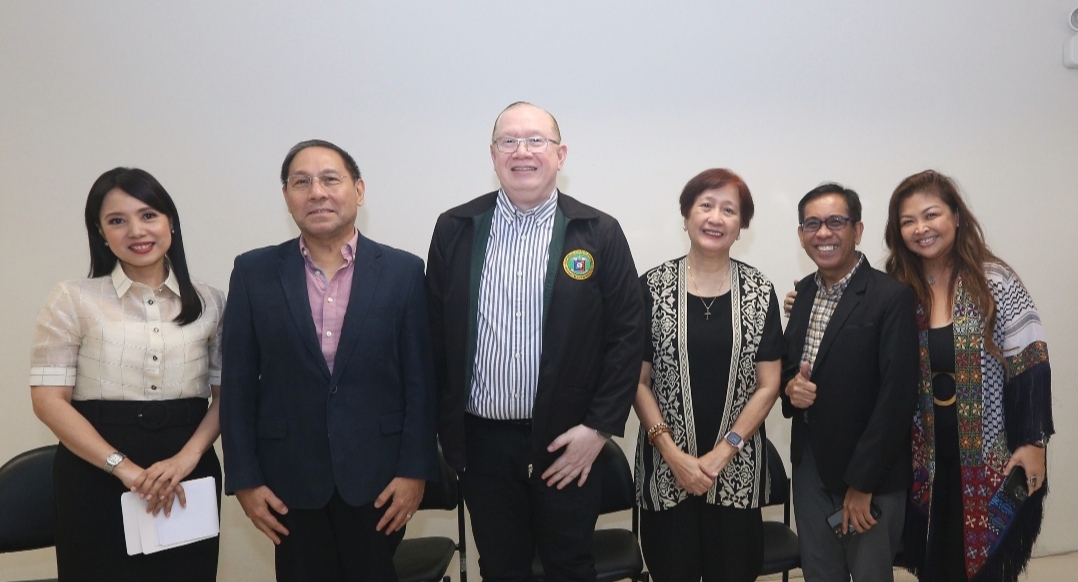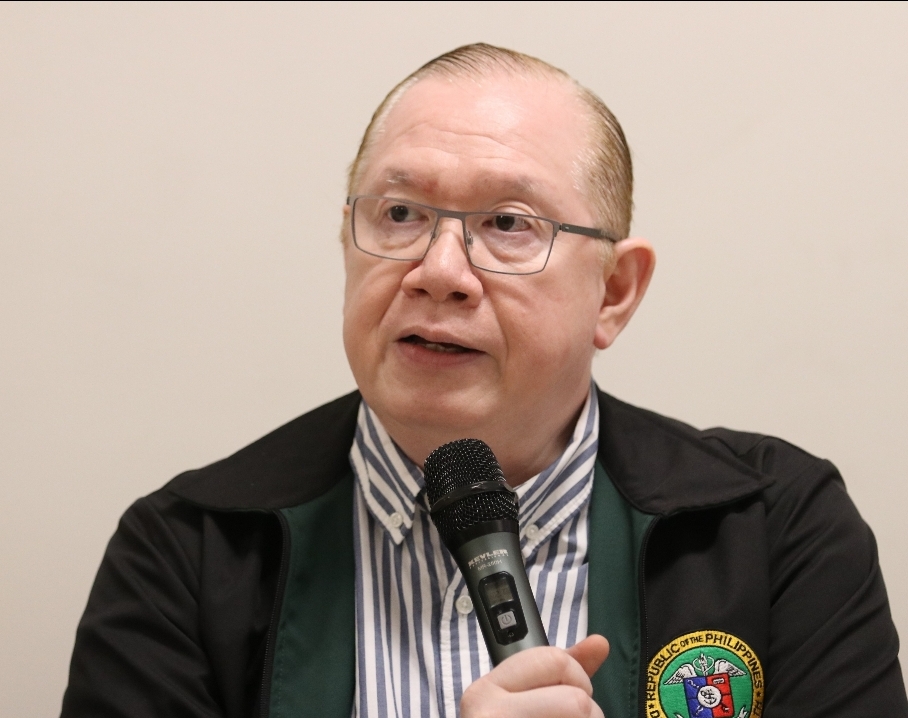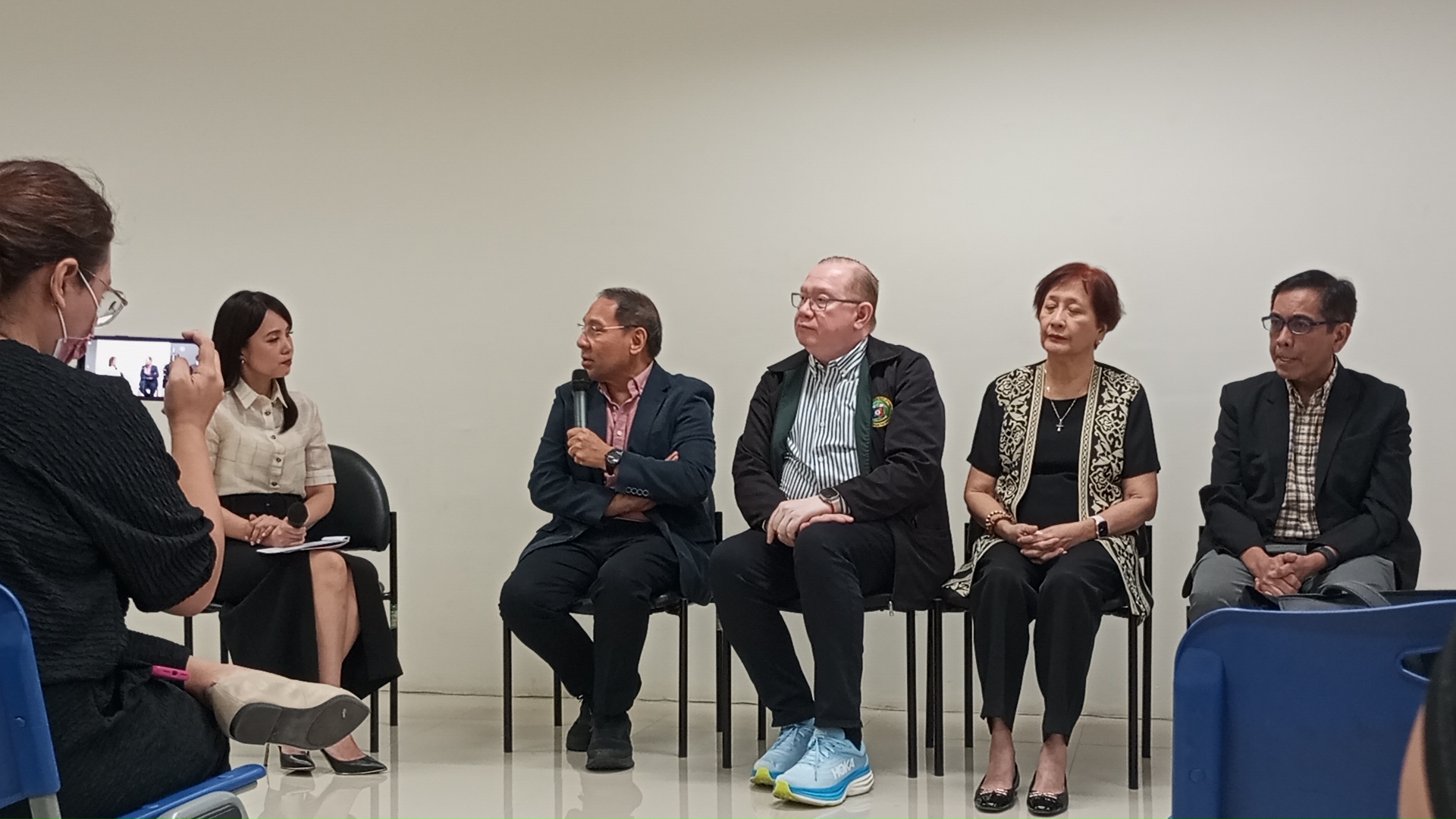Last February 2, 2024, at the Jose Fabella Memorial Medical Center, Department of Health (DOH) and the Vaccine Solidarity Movement (VSM) gathered medical professionals, healthcare technologists, and legislators for a closed-door discussion entitled “A Dialogue on Dengue: Protecting Our Children from the Epidemic”. It is an exclusive dialogue that will encompass effective and long-term solutions against dengue, the role of policy making, and the extension of primary healthcare services to communities.
In the face of the lethal threat that Dengue poses, especially for children, the nation must take collective action and utilize new innovations against the potentially fatal disease.
“My oldest daughter had it 2 times! It was very scary, and I would not want to go through any of that again — but the reality is we are all at risk. Wala pong pinipili ang dengue, bata o matanda, mayaman o mahirap. [dengue can hit anyone, old or young, rich or poor] Ang sa dengue pag akala mo gumaling ang lagnat okay na [what’s scary is, you think it’s better because the fever breaks] But that is when it can get fatal. Wag hintayin mawala ang lagnat [don’t wait till the fever breaks], seek medical attention & manage right away.”
Signs of the times
In 2023 a record year for dengue globally, unusually dryly “slow” year for the Philippines for dengue, we ranked third among countries with the highest dengue cases. Looking back at previous years’ data, it was discovered that
in 2019, which was considered a record year for the Philippines, there were 371,717 recorded dengue cases, resulting in 1,407 deaths.
Approximately half of these dengue-related deaths occurred in children between the ages 5
and 9. If the Philippines not been spared from the record year 2023 due to an unusually dry rainy season, which spared the country from a more severe outbreak, it is estimated that over 1,000 children could have lost their lives to dengue in the same year.

The country’s foremost public health authorities and advocates came together, highlighting the importance of a whole-of-nation approach and embracing new discoveries in the country’s journey against Dengue. (From left to right): Broadcast journalist and mother of Dengue survivors Niña Corpuz-Rodriguez, Professor and Former Dean of the College of Public Health of the University of the Philippines Manila and President of the Philippine Academic Consortium for Public Health Dr. Vicente “Jun” Belizario Jr., Department of Health Undersecretary of Health for Public Health Services and Chief Information Officer Eric Tayag, Head of the Vaccine Expert Panel of the Department of Science and Technology (DOST) Dr. Nina Gloriani, Vice President of the Philippine Federation of all Professional Associations and Immediate Past President of the Philippine Medical Association Dr. Benny Atienza, and Vaccine Solidarity Movement Co-Founder Amor Maclang.

Department of Health Undersecretary of Health for Public Health Services and Chief Information Officer Eric Tayag noted the government agency’s openness to a Dengue vaccine while emphasizing the importance of upholding the “first do no harm”
According to Department of Health (DOH) Undersecretary of Health for Public Health Services and Chief Information Officer Eric Tayag, there is a possibility of an earlier rise in cases due to El Niño. However, the severity of the dengue outbreaks this year will depend on the behavior of communities and the effectiveness of control measures implemented.
So, now there is an urgent need to utilize all available weapons in the existing anti-dengue arsenal in our war against dengue. Failure to do so could result in a devastating outcome, with well over 1,000 children losing their lives when dengue inevitably hits us hard again.
A whole-of-nation approach for our children
The experts on the panel emphasized the importance of collective involvement in combating this disease VSM Co-Founder Amor Maclang, speaking at the event, urged the entire nation to actively engage in the fight against Dengue, “Public health issues can only be taken on if the private sector, the government, the whole of society takes on the issue.”
Dr. Benny Atienza, Vice President of the Philippine Federation of all Professional Associations and Immediate Past President of the Philippine Medical Association, cited an example of a collaborative effort involving children and the adults in their lives. He mentioned the development of catchy songs designed to creatively educate children about the disease, enabling them to recognize and effectively communicate symptoms to guardians and medical professionals.
During the event, Dr. Vicente Belizario Jr., a respected Professor and Former Dean of the College of Public Health at the University of the Philippines Manila, as well as the President of the Philippine Academic Consortium for Public Health, emphasized the crucial role of media and journalists in raising dengue awareness among parents, guardians, and even teachers. He highlighted the significance of education in empowering individuals with knowledge about the disease, its symptoms, prevention methods, and the importance of early detection.
Dr. Belizario recognized the media’s power to reach a wide audience through television, radio, newspapers, and online platforms, enabling the dissemination of accurate and up-to-date information about dengue.. “Media, we appeal to you to raise awareness sapagkat may kanya-kanya po tayong role para maka-iwas sa dengue [because we each have our own role to fulfill in Dengue prevention]”, said Dr. Belizario Jr., called out.
A game-changing new weapon
Dr. Nina Gloriani, former Head of the Vaccine Expert Panel of the Department of Science and Technology (DOST), encourages the public to “move with the times” and take advantage of new discoveries such as next-generation vaccines. One of the next-generation vaccines available on the market today is TAK-003, the only next-generation vaccine that has been licensed for use in more than 30 countries: the European Union (EU), the United Kingdom, Argentina and Countries with dengue epidemiological situations similar to the Philippines such as Indonesia, Brazil and more recently Thailand.

The TAK-003 is safe to use for everyone, even those who have not previously had Dengue. The vaccine was engineered on a Dengue backbone, unlike the first dengue vaccine in the market. TAK-003 can create immune responses at different levels to all four strains of dengue virus helping to prevent disease and reduce the likelihood of hospitalization in people with dengue fever. The World Health Organization’s (WHO) Strategic Advisory Group of Experts (SAGE) on Immunization recommends a well-designed communication strategy and community engagement along with the vaccine.
Gloriani’s words resonated with a powerful sense of hope and optimism as she discussed the implementation of vaccines “Hopefully maidagdag natin yung [we can add] vaccination. Meron nang mga pagbabago. [There are new developments.] Nakita nyo kung paano natin nagamit ang mga bagong technology [You’ve seen how new technologies were utilized] for COVID and we have a lot of lessons learned from that”, she said. Her message left no room for doubt, a strategic use of vaccines can pave the way for a better future in our fight against dengue – especially in protecting our children.
Undersecretary Tayag while emphasizing the importance of a meticulous evaluation process, expressed a willingness to consider the introduction of a new vaccine. His statement reflects a balanced approach, acknowledging the need for thorough assessment to ensure the safety and efficacy of any potential vaccine.
He said, “So ninilaw lang po namin na nananatiling bukas ang Department of Health. Subalit, katulad ng ginawa namin sa COVID, ito ay may mga pag-aaral na dapat gawin at ito ay aming tinitingnang mabuti sapagkat may responsibilidad kami na kung ito man ay irere-introduce natin, ang aming prinsipyo po ay “first do no harm”. [We want to make it clear that the Department of Health remains open. But just like what we did in the COVID-19 situation, this requires a careful study, and we are looking closely into it because if we will re-introduce it, we have a responsibility to follow our ‘first do no harm’ principle.”
With an extraordinary triumph over COVID-19 vaccine misinformation, the Philippines has emerged as a global frontrunner, ranking fourth in single-day vaccine uptake and administering a staggering 2.7 million vaccinations in a single day. Dr. Atienza shared this remarkable achievement at the roundtable panel discussion, underscoring the nation’s unwavering commitment to public health. Buoyed by this success, the Vaccine Solidarity Movement (VSM) is now spearheading efforts to combat dengue and other vaccine-preventable diseases, further solidifying their dedication to safeguarding the well-being of the public especially for the children.
“We have to turn up the same fervor that we turned on during the COVID pandemic and we have to right now rally behind the objective of the DOH. 95% coverage,” echoed Maclang.
In the face of emerging promising solutions, it is imperative for the nation to fully utilize its arsenal against dengue before the next health crisis emerges and poses a threat to our children. The urgency to take action today is crucial to safeguarding the well-being of future generations.